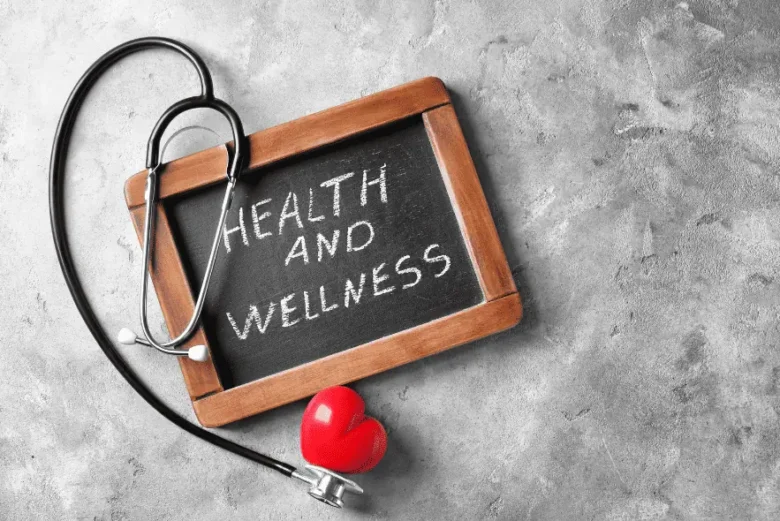Healthy living doesn’t happen overnight. The key to long-term health is regular exercise that promotes your physical and mental well-being. Health is more than just fitness or diet. It’s about how you move, eat, rest, and think. Simple habits, when maintained, can become a lifelong tool for wellness. A specific daily wellness regimen can provide a solid foundation for feeling energized, balanced, and energetic every day.
Start with Focus and Rest
Your morning ritual sets the tone for your day. A calm, focused morning can boost your well-being, productivity, and energy. Instead of checking your phone when you wake up, take a deep breath, stretch, or reflect. Morning meditation, journaling, and drinking water can help you focus. This quiet time can help you connect with yourself and mentally prepare for the day ahead, which can reduce stress and increase your focus.
Eat a Healthy Breakfast
Many people consider breakfast the most important meal of the day. It nourishes your body and keeps you focused after hours of fasting. A healthy breakfast is rich in protein, fiber, and healthy fats to keep you feeling full. Avoid energy crashes by avoiding sugar and processed foods. Healthy, nutritious foods can help you start your day and improve your eating habits.
Exercise to Stay Active
Exercise is essential for your health. The benefits of exercise don’t require intense workouts. Regular walking, stretching, or yoga can be just as effective. Exercise improves your mood, circulation, muscle strength, and joint health by releasing endorphins. Daily movement can strengthen the body, clear the mind, increase your energy, and minimize long-term health risks.
Hydrate and Focus Your Body
Water is essential for digestion, brain function, and all physiological systems. Drinking enough water every day is essential to staying alert, reducing fatigue, and maintaining healthy skin and organ function. Keep a water bottle handy to remind yourself to drink water. Also, listen to your body. When you feel worn out, hungry, or sick, check in with your needs. Taking breaks when needed and eating nutritious foods can help you build a healthier relationship with your body.
Take Short Breaks to Refresh your Mind
The human brain and body are not designed to work for long periods of time without rest, but modern life requires long periods of focus and multitasking. Taking short breaks throughout the day can improve mental clarity, reduce stress, and prevent burnout. Even stretching for five minutes, closing your eyes, or walking away from your desk can help you focus and manage stress. Short breaks can clear your mind and re-energize you for work.
Eat a Balanced Diet
Lunch and dinner are excellent opportunities to recharge and stay energized. Mindful eating focuses on what, how, and how much you eat. Instead of rushing through your meals, sit down, chew, and savor each bite. A balanced meal with various food groups can meet your nutritional needs and reduce your afternoon cravings. Mindful eating promotes digestion and a healthy relationship with food.
Mindfulness and Breathing to Reduce Stress
Stress is inevitable, but how you manage it is crucial. Deep breathing, meditation, and spending time in nature can calm your nervous system and restore your emotional balance, helping you cope better with everyday stress. If you’re feeling overwhelmed, taking a few deep breaths can help you release the tension. Incorporating these techniques into your daily life can help you overcome challenges more easily, build your resilience, and improve your physical and mental health.
Limit Screen Time and Connect Regularly
Technology is a part of modern life, but too much screen time—especially before bed—can disrupt your sleep, increase anxiety, and cause mental fatigue. By limiting your phone, internet, and TV use, you can free up time for reading, hobbies, and personal contact. Try a regular digital detox ’by taking a break from screens an hour before bed. Being mindful about your technology can boost your mental clarity and focus.
Prioritize Rest and a Consistent Sleep Schedule
Sleep is essential for your immune system and mental health. Prioritizing rest means getting enough, quality, and consistent sleep. Dimming the lights, limiting coffee, and practicing gratitude can help your body wind down at night. Going to bed and waking up at the same time every day regulates your body’s internal schedule, making it easier to fall asleep and wake up refreshed.
End Your Day with Gratitude and Reflection
Before you end your day, be grateful and reflect on what went well. This simple technique can replace tension and worry with gratitude and presence. You can write down what you’re grateful for, reflect on your accomplishments, or acknowledge your feelings. Ending your day on a positive note can improve your sleep and mindset. Over time, gratitude builds emotional resilience and well-being.
Conclusion
Daily well-being habits involve making conscious choices that promote health and well-being. It’s not about perfection or rigidity, but about consistency and balance. Healthy habits, such as mindful eating, regular exercise, drinking enough water, rest, and self-care, all contribute to your mental and physical well-being. Daily habits become ingrained in you, empowering you to lead a healthier and more vital life. Personal ideals, needs, and lifestyle should guide your wellness plan. It is important to start where you are now, make small changes, and develop habits that you enjoy.
FAQs
1. What are daily wellness habits?
A daily wellness regimen helps you live a more balanced and healthy life by supporting your physical and mental health.
2. How do I start a wellness regimen?
Start with small changes, such as drinking more water, sleeping more, or taking short walks. Gradually integrate wellness habits into your lifestyle.
3. How important is sleep for your health?
Sleep is necessary for physical recovery, mental clarity, and emotional balance. Regular, restful sleep improves your health and resilience.
4. Can a wellness regimen relieve stress?
Meditation, breathing exercises, and rest can help you manage stress.
5. How Effective Is a Wellness Regime: How Long Does It Take?
Most people see changes in their energy, attitude, and health after a few weeks of consistent practice.




